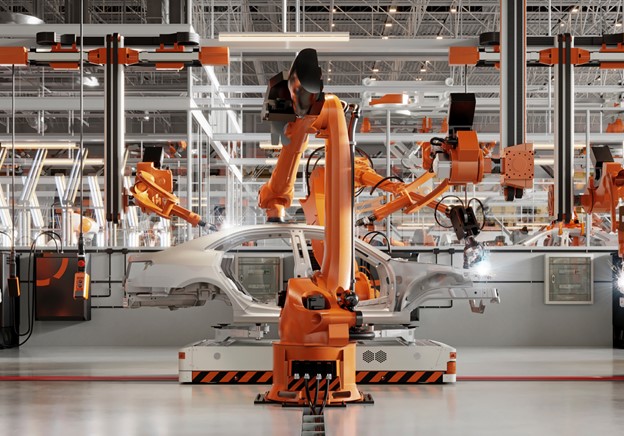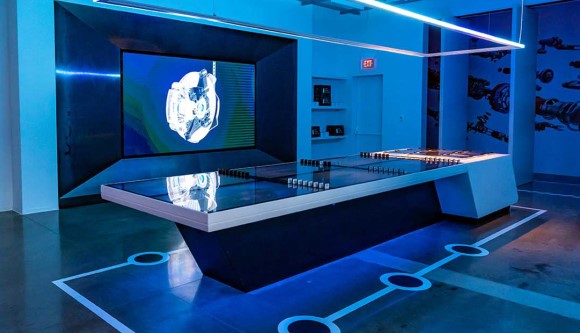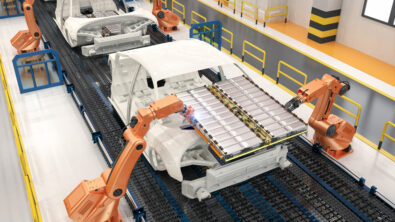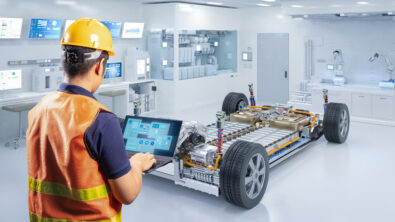Siemens and Deloitte on Smart Manufacturing: The Key to Optimizing Next-Generation Automotive Production

Smart manufacturing enables automakers to increase their flexibility and meet shifting consumer demands while reducing costs and minimizing disruptive delays.
The automotive sector is evolving at a rapid pace and presenting manufacturers with challenges that demand innovative solutions. Automakers can no longer focus solely on mechanical innovations. Car buyers now want customizable experiences enabled by sophisticated software-driven features enabled by powerful electrical and electronics systems. This shift has transformed vehicles into advanced computers on wheels, leaving automakers in need of adaptable manufacturing processes capable of handling diverse builds and integrating advanced features, such as seamless over-the-air software updates. In addition, sustainability has become a non-negotiable priority, prompting a shift towards electric vehicles (EVs) and eco-friendly manufacturing practices to curb emissions.
Traditional manufacturing methods do not provide manufacturers with the capabilities they need to keep pace with these changes and stay ahead of the competition. Automakers should consider adopting smart manufacturing practices that better enable them to meet demand for new features and functionality, satisfy safety and sustainability requirements, keep spending down, and meet delivery deadlines.
Conventional Manufacturing Processes Fail to Meet the Moment
Automotive manufacturers face significant technical challenges in adapting to changing market conditions, regulatory constraints, and sustainability requirements. They should swiftly reconfigure existing production lines to accommodate new products and customization while efficiently establishing new lines with minimal disruptions. Meeting consumer preferences requires adaptability that enables more rapid innovation and accelerates the introduction of new features.
Conventional manufacturing practices, however, do not enable the flexibility and innovation required to compete in today’s automotive industry. Physical installation and commissioning methods, for example, rely heavily on a trial-and-error approach that is ill-suited for making rapid improvements to production lines. As a result, organizations often get bogged down when they rely on these practices to determine the benefits of new line set-ups, tooling methods, and manufacturing processes. Because of that, they miss important development or delivery milestones and rack up redesign and rework expenses.
In addition, resource-intensive physical testing and process improvement methods fail to provide clear insight into how changes made in one part of the manufacturing process will manifest elsewhere. This increases costs and slows the pace of improvement, leaving manufacturers without a clear, efficient path to meeting the demands of the changing automotive market. This approach to manufacturing is also not sufficiently sustainable. Multiple design, prototyping, and testing cycles cause excess material and energy waste, which undermines automotive companies’ sustainability initiatives and even risks damaging their reputation.
Smart Automotive Manufacturing Meets Automakers’ Needs
In contrast to traditional methods, smart automotive manufacturing practices increase sustainability, enable greater production flexibility and efficiency, and minimize disruptions. Smart manufacturing leverages innovative technologies and data-driven solutions— including applications for smart conveyance, factory asset intelligence, dynamic scheduling, quality sensing, and smart energy management—to establish a digitally enabled, interconnected manufacturing ecosystem. Within this ecosystem, manufacturers can develop digital twins of their manufacturing lines and processes. They can then use these digital representations to virtually install, commission, and test new or upgraded manufacturing lines before committing to—and investing resources in—physical builds.
Virtual development and testing also allow automotive companies to avoid the financial burden associated with reworking flawed physical prototypes or reconfiguring manufacturing processes. Automakers can deploy new lines more rapidly and make improvements to existing lines, confident that they will run efficiently from the beginning. As a result, manufacturers are better equipped to adjust to evolving driver preferences, reduce waste, satisfy new regulations, and eliminate expensive delays.
In addition, smart automotive manufacturing empowers automakers to gather, manage, analyze, and apply manufacturing data to make product and process improvements that help them keep pace with the competition. Companies can use data produced by various edge devices in the smart manufacturing ecosystem to create streamlined workflows and continuously improve manufacturing efficiencies. This can ultimately increase productivity, reduce costs, and enable automotive companies to deliver new, innovative products and features to the market more quickly.
Embracing Smart Manufacturing
The automotive industry’s rapid evolution demands increased adaptability and faster, more efficient manufacturing practices. The conventional methods automakers have long relied upon are no longer sufficient, leaving manufacturers susceptible to production disruptions, increased expenses and wasteful processes. Smart automotive manufacturing, on the other hand, provides companies a digitally interconnected ecosystem that enables swift adaptation to consumer demands, empowers them to launch new lines and improve existing lines more quickly and cost-effectively, and promotes greater levels of sustainability.
Incorporating Artificial Intelligence (AI), Machine Learning (ML), the Industrial Internet of Things (IIoT), edge computing and advanced automation into production execution is a critical step to taking control of your manufacturing costs and quality. By establishing a single source of product and process data, this approach emphasizes the reuse of best practices and efficient resource management for continuous improvement. By leveraging manufacturing data, digital twins, and innovative software solutions, automotive manufacturers can optimize production processes, avoid expensive rework, and improve overall efficiency. Embracing smart manufacturing not only positions automakers to stay competitive but also enables them to deliver cutting-edge products while meeting regulatory and environmental standards. Achieving these outcomes is a necessity for automotive manufacturers as they look to stay ahead in a complicated, ever-evolving market.
Partners in Innovation
Siemens and Deloitte have come together to provide such tools, offering solutions that allow companies to establish a virtual representation of their manufacturing lines and processes. Organizations can then virtually test new or flexible manufacturing lines before building them out. This allows them to ensure completion before investing in physical builds. By doing preliminary testing in this manner, organizations can avoid time-consuming rework and get their new lines up and running faster.
How to experience smart manufacturing in practice? The Smart Factory by Deloitte @ Wichita provides a real-life testing ground to demonstrate the benefits of smart automotive manufacturing methods. This state-of-the-art facility allows customers to understand the power of digital transformation firsthand by experiencing practical demonstrations of the latest smart manufacturing solutions on an end-to-end, working production line.
With The Smart Factory by Deloitte @ Wichita, Deloitte has created a remarkable facility to engage manufacturers with the tools and solutions available and demonstrate how they can be adopted to make targeted manufacturing improvements. The Smart Factory on Wichita State
University’s Innovation campus, where Deloitte, Siemens, and other ecosystem members have joined together, showcases how today’s manufacturers can accelerate smart manufacturing practices.

To learn more about the benefits and advantages of smart manufacturing—and how Siemens and Deloitte have partnered to create a real-life testing ground to demonstrate them—download the eBook “The Power of Smart Manufacturing: How Siemens and Deloitte Are Redefining Production in the Automotive Industry” today.
For more visit:


